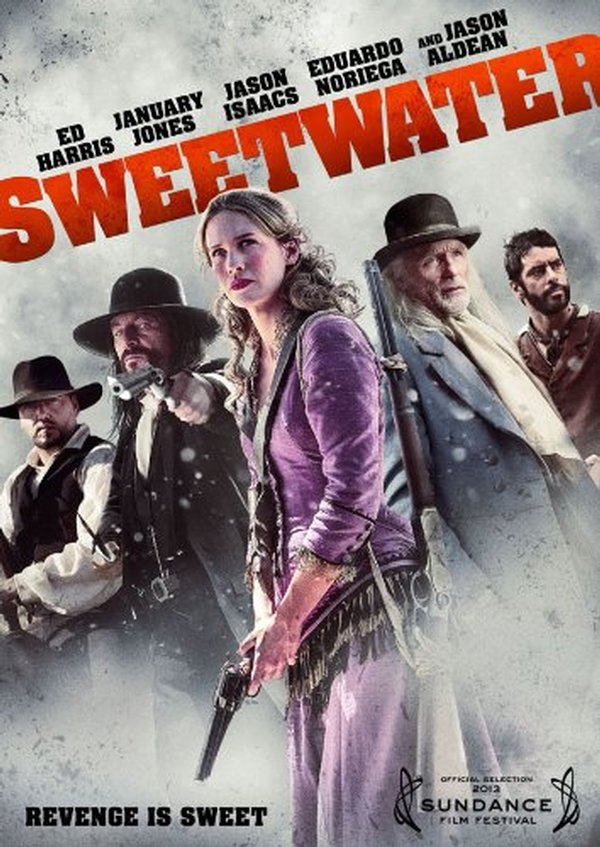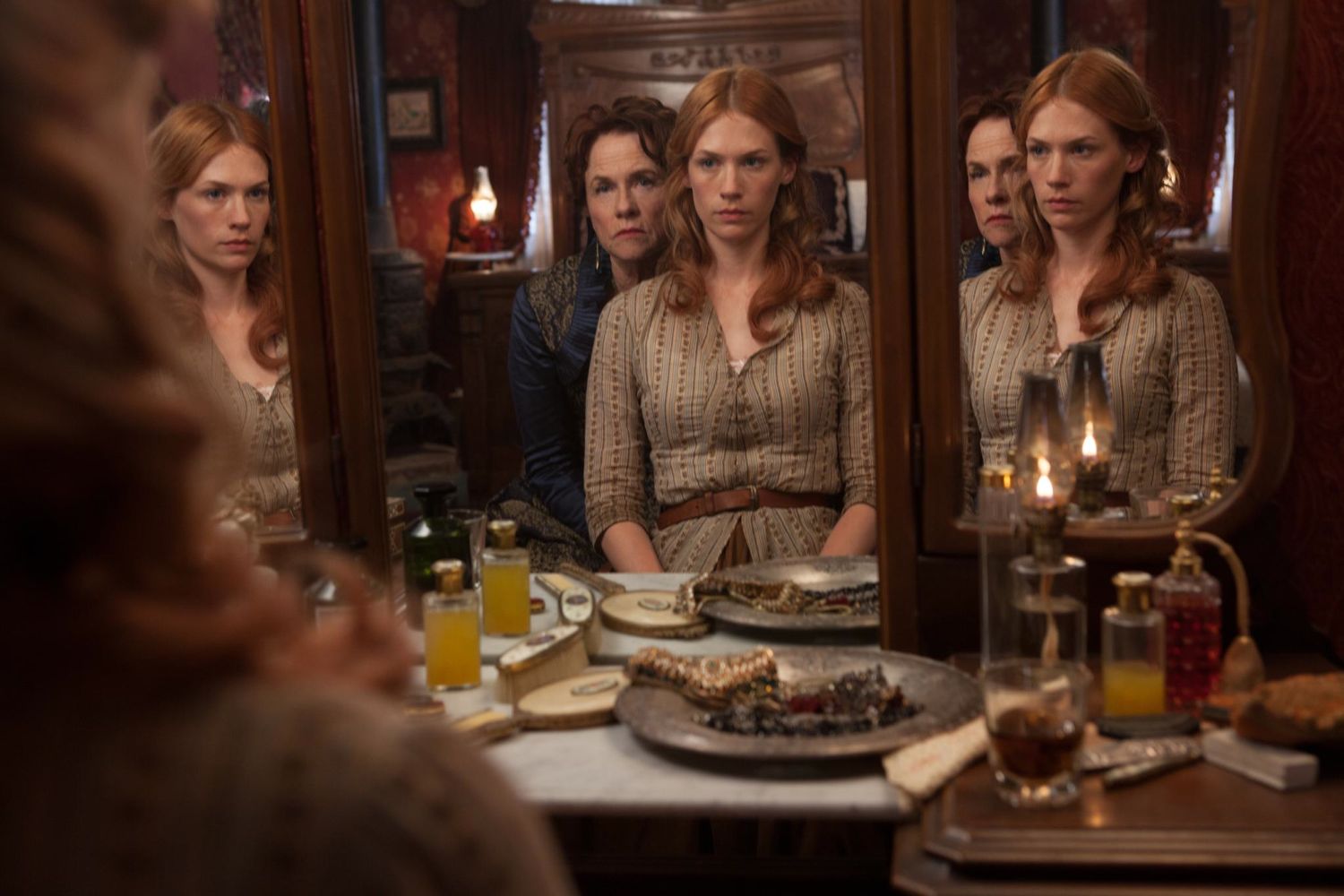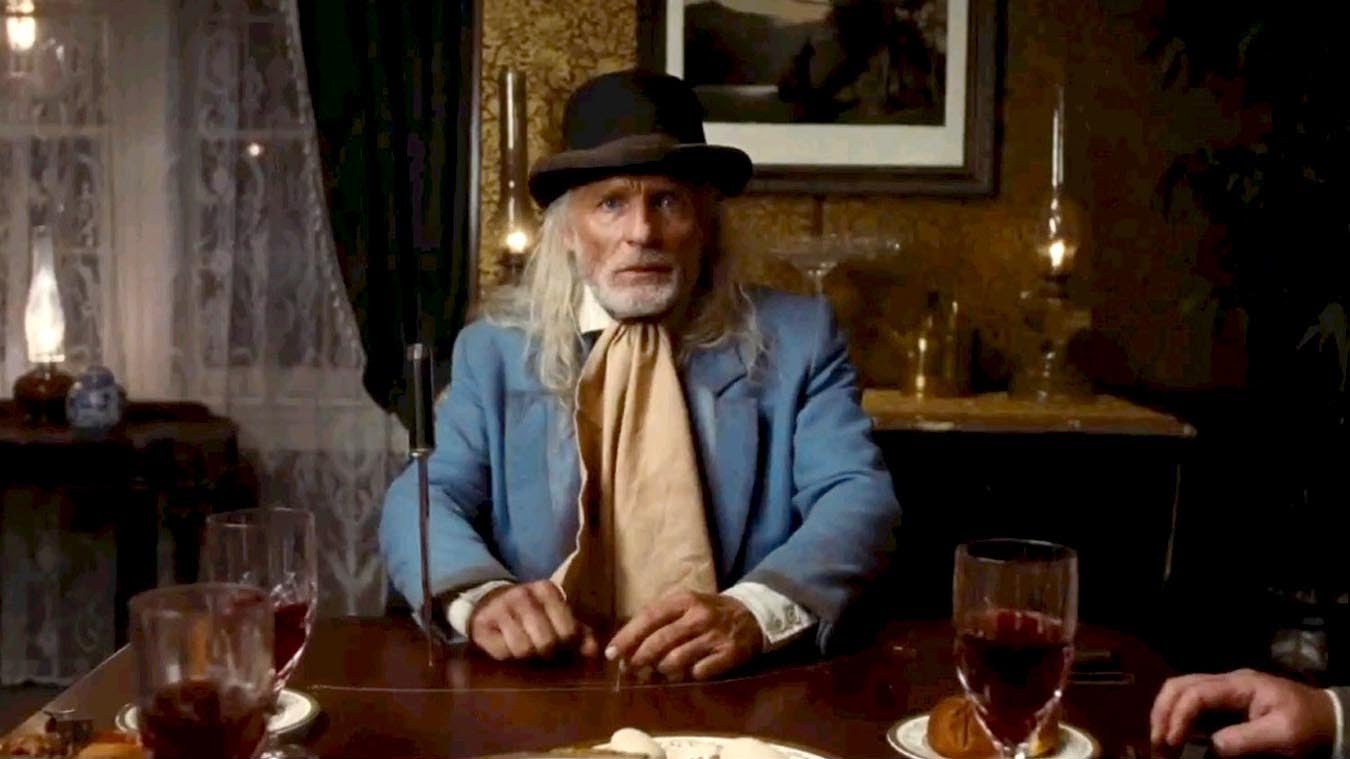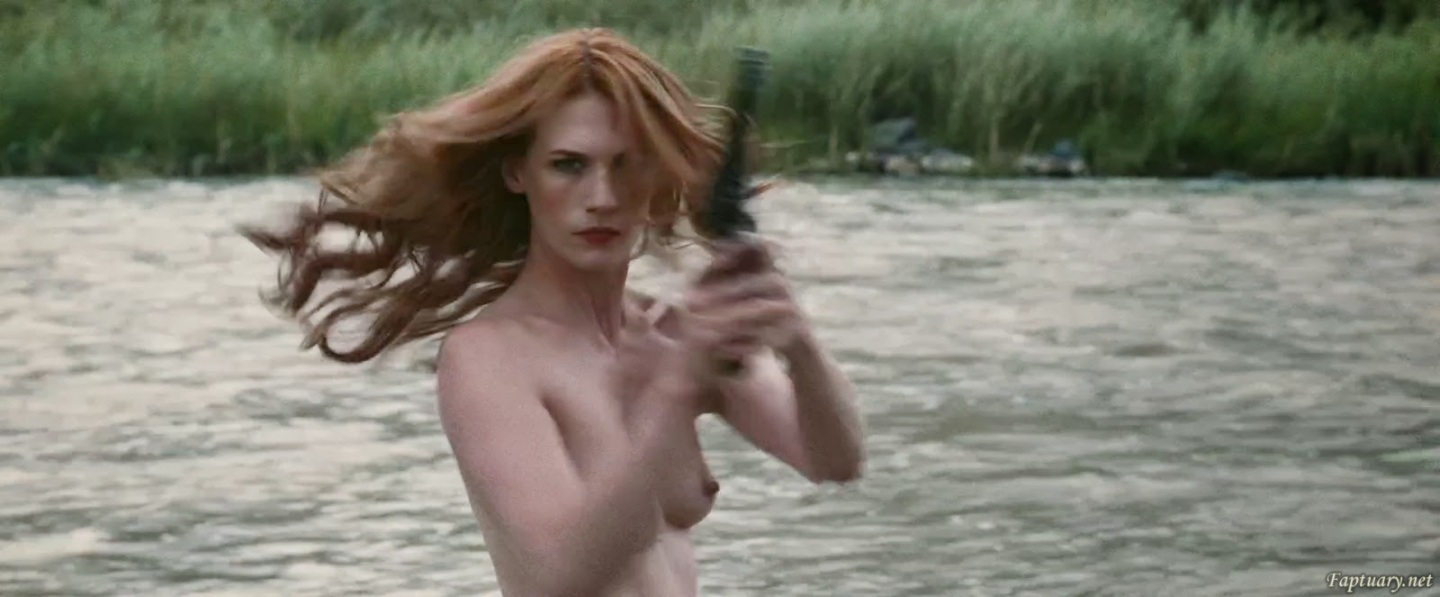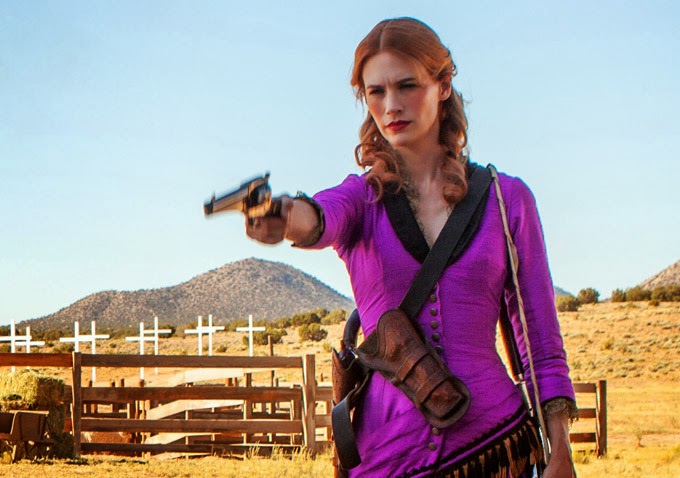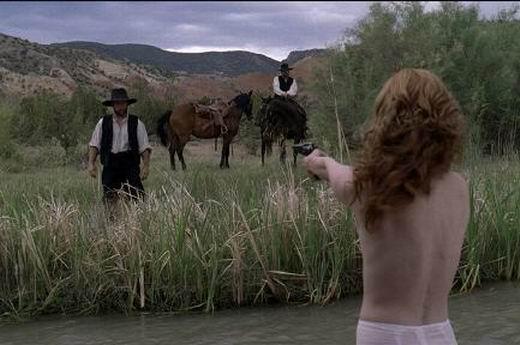I felt a sort of foreboding as this film opened, with its spare, moody, vaguely ominous music over the titles and an early scene featuring a mad-looking preacher spouting synthetic Victorian gobbledegook — Cormac McCarthy lite. I thought it might be one of those arty Westerns for people who hate Westerns.
It turned out not to be quite that bad, but a failed Western all the same. The dialogue stayed artificial and unconvincing, and much of the acting was mediocre, and while it had a story to tell — a pretty good old-fashioned Western story of revenge, of shame and injustice and honor redeemed — it decided not to tell that story.
It’s too bad, because the film had a couple of great things going for it. The first was the landscape of northern New Mexico, filmed beautifully. The second was January Jones in the lead role. She’s a wonderful actress, with a face that’s beautiful and strong — she’s instantly convincing as a woman of pioneer stock.
[Spoilers below . . .]
When her character’s husband is killed by the homicidal preacher, you expect her to team up with an eccentric but honorable bushwhacker who arrives on the scene, a character played a little too eccentrically by Ed Harris, in order to right the wrongs done to her and to others. It’s a traditional Western theme, found most notably in True Grit, involving a kind of surrogate fatherhood leading to the empowerment of the daughter figure.
Instead, the two never make a real alliance and the woman goes on a killing spree of disproportionate violence, in which one’s sympathy for her is gradually dissipated. There is something satisfying about the woman’s unbridled rage, as there is about Medea’s, but it betrays an unspoken code of traditional Westerns — that violence must always be measured by moral justice. When the woman starts killing unarmed people who pose no physical threat to her, we’re way outside the bounds of the traditions of the genre.
I really don’t know why filmmakers want to fuck with the genre this way — to push it past the expectations and the ideals of people who love Westerns. You have to love Westerns yourself to make a movie like this, which gets so many things right before going off the rails.
As you can tell from their letters and from the transcripts of court testimony, people on the frontier often had a powerful and eloquent command of language, influenced by Shakespeare, The King James Bible and The Book Of Common Prayer. Writers of modern Westerns should read those things if they want to place memorable words in the mouths of their characters, avoiding the post-modern gibberish of McCarthy, which is where Logan and Noah Miller, the writers of Sweetwater, seem to have picked up their notion of frontier talk, along with their Grand Guignol notions of Western mythology. Bad move.
The film showed at Sundance but apparently wasn’t picked for national theatrical distribution. Just as well — it would have sunk like a stone, Miss Jones’s considerable charms notwithstanding.

